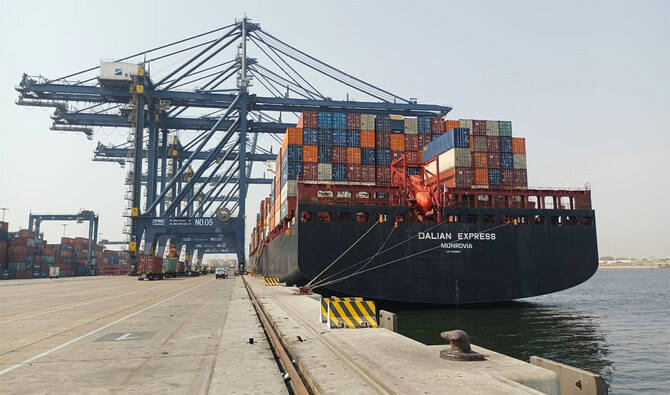ISLAMABAD: Pakistan should diversify its markets for exports, collaborate with other countries to formulate a multilateral response to Washington and reinforce existing trade partnerships with China and the Middle East in response to tariffs imposed by the United States, a Karachi-based independent think tank said recently.
US President Donald Trump imposed tariffs on several countries on Apr. 2, defending the measures as necessary to address long-standing trade imbalances and what he described as unfair treatment of American goods abroad. Islamabad would have been slapped with a 29 percent tariff rate before Trump walked back on the announcement on Apr. 9, pausing it for 90 days. A 10 percent blanket duty on almost all US imports will remain in effect.
A study by the Pakistan Institute of Development Economics (PIDE) entitled ‘Impact of Unilateral Tariff Increase by United States on Pakistani Exports’ said this month when added to the existing 8.6 percent Most Favored Nation (MFN) tariff, the total duty after the imposition of the 29 percent tariff could reach 37.6 percent. This would likely result in a 20-25 percent decline in Pakistani exports to the US, translating into an annual loss of $1.1-1.4 billion, with the textile sector bearing the brunt of the blow.
“Pakistan should work on diversifying its export markets to reduce dependency on the US market,” the Policy Research & Advisory Council, (PRAC) an independent think tank that says it provides input for policies and advocates for economic and business interests, said in its report titled “An Analysis of US Tariff Barriers Impacting Pakistan’s Trade.”
“Establishing trade agreements with emerging economies such as Africa or the Central Asian Republics (CARs), or reinforcing existing partnerships, like those with China or the Middle East, could mitigate the risks of trade losses due to tariff hikes,” it added.
Pakistan has strengthened its business-to-business (B2B) ties with the Kingdom in recent months, with both sides announcing in October 2024 they had signed 34 memoranda of understanding and agreements worth $2.8 billion to enhance private sector collaboration and commercial partnerships.
China, on the other hand, has invested billions in an infrastructure and energy corridor project that connects China’s Xinjiang province to Pakistan’s Gwadar Port via a network of highways, railways, and pipelines.
PRAC advised Pakistan to collaborate with other nations facing similar tariff challenges, such as Bangladesh and Vietnam, urging it to formulate a multilateral response to Washington’s tariffs.
“This approach could involve coordinated advocacy at international trade forums, such as the World Trade Organization (WTO), to mitigate the broader global impact of US tariff policies and promote fairer trade practices,” it said.
Pakistan’s textile industry is expected to face significant challenges from the tariffs, with potential losses of up to $2 billion in exports estimated by experts if the 29 percent tariff rate is reinstated.
The think tank urged Islamabad to leverage its competitive advantage in sectors such as wearing apparel, woven fabrics, food products and non-metal wastes where tariff increases for Pakistan are lower compared to Vietnam and Bangladesh.
It pointed out that when it comes to textile yarn, threads and carpets, despite higher tariffs Pakistan still holds an edge over Vietnam. However, sectors such as medical equipment, plastics and rubber tires benefit from smaller tariff hikes, offering growth potential.
“By focusing on these sectors, Pakistan can enhance its export basket and capture greater market share,” the report said.
PRAC advised Pakistan to reduce its reliance on a “narrow” export basket, improve production efficiencies to secure new markets to mitigate the impact of rising tariffs and safeguard its existing exports.
“Implementing these measures will not only protect the country’s trade interests but also position it for greater resilience and competitiveness in the global market,” it concluded.
















